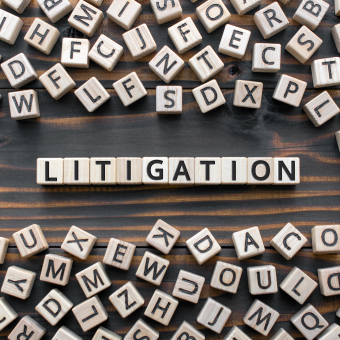

Legal Insight
October 2024
Vasiliki Tolia, LL.M
Introduction: The Center for the Verification and Collection of Public Debt (K.E.V.EIS.) has now been operational for a year in Attica and about half a year in Thessaloniki, actively fulfilling its role as a central hub for certifying and collecting debts owed to the state. By relieving local tax offices, K.E.V.EIS. expedites enforcement actions against debtors by swiftly verifying debts and initiating enforcement measures. However, procedural errors and omissions, particularly at the initial stages of enforcement, remain frequent, as responsible officials predominantly use preformatted templates (e.g., for compulsory seizure) without completing the required fields. Such negligence can cause irreparable harm to the recipients of these documents. This article aims to shed light on one of the most unfair scenarios: the issuance of an indefinite order for seizure of assets held by a third party by the Independent Authority for Public Revenue (IAPR) in cases where the third party had no prior indebtedness to the state before the issuance of the order.
I. Essential Elements for Specifying a Third-Party Seizure Order by the State
The state frequently proceeds with seizures in the hands of third parties to satisfy its claims against its debtors. This often occurs within the framework of lease agreements, where the state’s debtor is the lessor, and the lessee is the third party. Due to the mandatory online posting of lease agreements with the IAPR, the state becomes aware of the third party's identity and issues a seizure order against them as a third party. To avoid nullity under settled court practice, such an order must include:
a) All information stipulated in Article 30, paragraph 1 of the Public Revenue Collection Code (K.E.D.E.) and Article 983, paragraph 1 of the Civil Procedure Code (CPC), including the debtor and third party’s names and tax identification numbers (TINs), the amount for which seizure is imposed, the debtor’s debt table, date, and signatory of the seizing officer, a description of the title and claim underlying the seizure, and an order to the third party not to pay the debtor against whom enforcement is directed.
b) A brief but clear reference to the legal relationship underlying the debt of the third party to the debtor. Although this element is not mentioned in Articles 30 of K.E.D.E. and 983 of CPC as necessary content, its absence renders the order null due to vagueness (see SC 884/2010, 1182/2009, 825/2018, and other cited cases).
c) Additionally, if the seizure concerns future claims of the debtor against the third party, such as future rents, this must be explicitly stated in the seizure order to ensure clarity (see Maria-Louiza Bakalakou and Spyridoula Andriopoulou, on the forced seizure in the hands of third parties for claims of the Greek state, as referenced).
II. Justification for the Necessary Inclusion of Elements (b) and (c) in the Seizure Order
Article 35 of the K.E.D.E. stipulates that: “The positive statement of the third party constitutes an enforceable title against them. Should the third party fail to make a declaration or make it late or without the prescribed form, they become liable to the state for any amounts owed to the debtor, as derived from the available IAPR electronic means, or for the entire amount for which the seizure was imposed.” The third party retains the right to prove before the relevant authority that they owe nothing to the debtor or that their obligation is less than the state’s claim, thus exempting themselves or limiting their liability accordingly.
Given this provision, the law imposes an obligation on the third party to make a declaration, either positive or negative, within eight days (Article 34 of K.E.D.E.) from the seizure order’s delivery. If they fail to do so, they are presumed liable for the full amount, unless IAPR records indicate otherwise.
III. Consequences of an Invalid Seizure Order
An invalid seizure order voids all subsequent actions by the state based on it, including the confirmation of debt against the third party and the resulting individual notification.
Furthermore, the third party’s omission to submit the declaration under Articles 34 and 35 of K.E.D.E. does not make them liable to the state, as the presumption of liability in Article 35 K.E.D.E. presumes the validity of the seizure order.
IV. Legal Protection for Third Parties in Cases of Invalid Seizure Orders
If the third party has only received the seizure order or debt confirmation via an individual notice, they are protected by filing an objection under Article 65, paragraph 1 of K.E.D.E. Since enforcement has not yet commenced, this objection seeks to annul the individual notice and the enforcement title, which consists of the debt confirmation and seizure order.
Once enforcement has commenced against the third party, they may seek annulment of enforcement through an objection under Article 65, paragraph 2 of K.E.D.E.
Both objections under paragraphs 1 and 2 of Article 65 are not subject to deadlines, with the first objection period ending only when enforcement begins, after which only the second objection remains applicable (see cited case law).
Conclusion: Administrative authorities frequently proceed with investigative seizures in third parties’ hands without verifying if the legal relationship between the state debtor and the third party is still active and without clearly explaining to the third party the precise nature of the seized assets. This situation likely arises due to the high volume of state debtors and understaffing, but it does not justify placing a financially responsible and compliant individual in the unfortunate position of being labeled a state debtor.